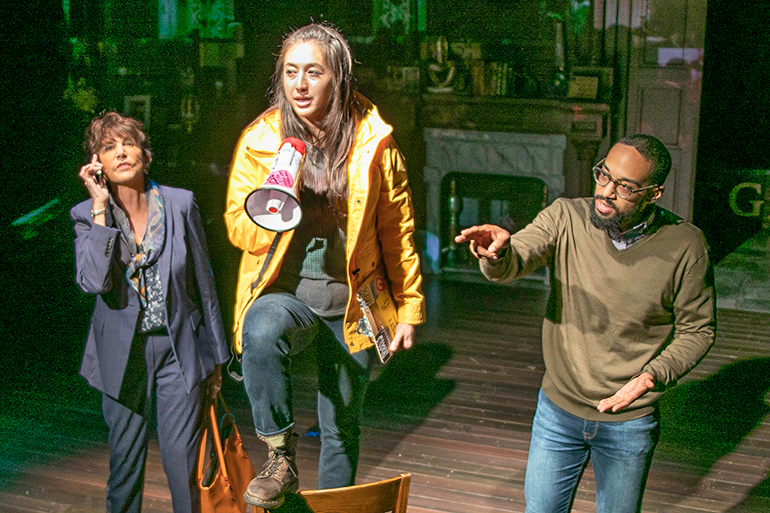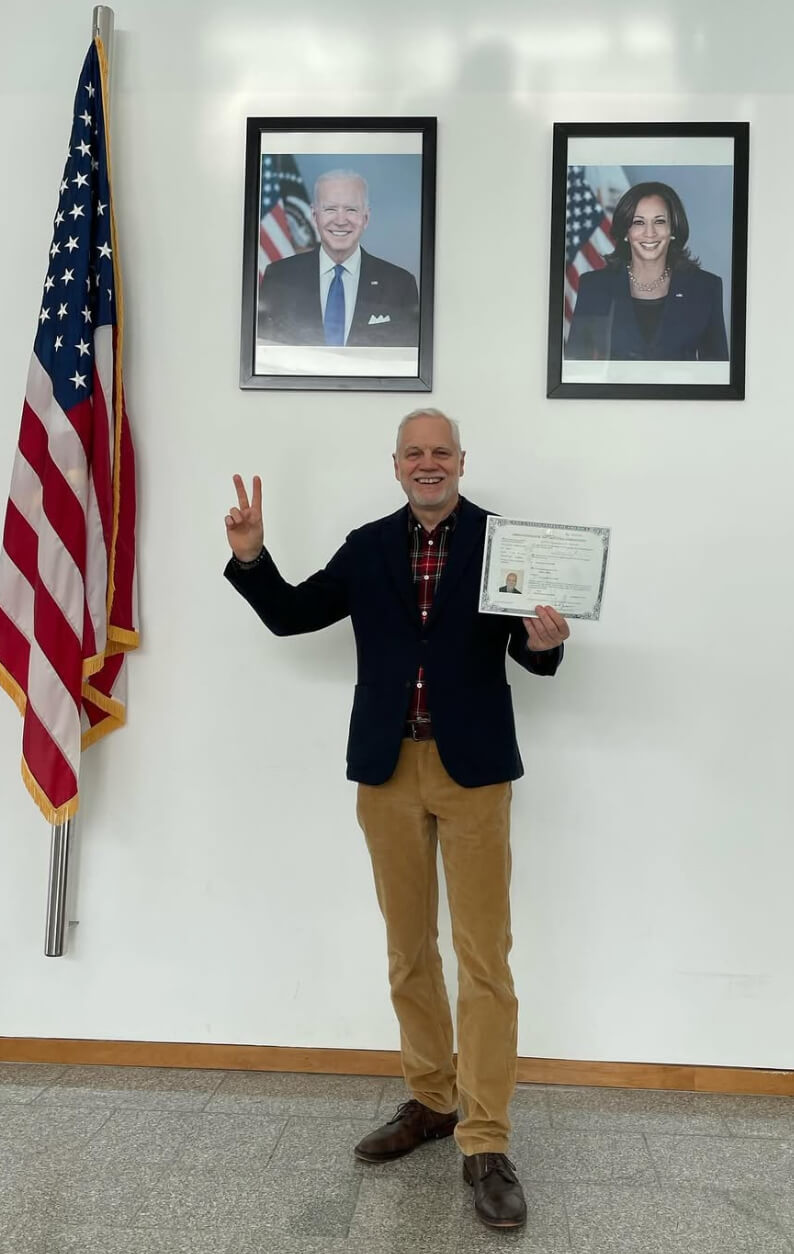'Safe Space' Explores Warring Schools of Thought at Bay Street Theater

Alan Fox’s Safe Space, which saw its world premiere at Bay Street Theater on June 29, pulls no punches when discussing topics at the forefront of America’s social consciousness today—racism, sexism, political correctness, emotional triggers and the growing trend of extreme identity segmentation (i.e. if someone is a pansexual, transgender, black woman from Honduras, and you only share four out of five of those traits, you can’t understand their struggle).
Directed by Jack O’Brien, the show’s three players comprise the commanding Jewish President of Alman College, Judith Rose (portrayed by Mercedes Ruehl); the brilliant African-American professor, Marcus Wood (Rodney Richardson); and the millennial Japanese student, Jenny Oshira (Sasha Diamond). The trio are at constant odds with each other throughout the play, often arguing over which minority has received the cruelest treatment in history.
Ruehl’s Judith is a shining light in an otherwise dark and serious play. Her biting wit and erratic movements bring about most of the show’s laughs, and her chess-like tactics are a welcome contrast to her rage-prone counterparts. Though glimpses into her past reveal Judith’s rise become Alman College’s first female president may not have been wholly pure, it’s difficult not to admire her take-charge personality and immense resolve.
Richardson’s Marcus opens the show with a lecture about Gutenberg’s printing press and the freedom of new ideas that followed its invention. His charisma wins many audience members to his side of the impending conflict right out of the gate. That inciting incident comes in the form of a letter sent to the Judith’s office, in which the author claims she felt attacked by Marcus’s recent assignment—to write an essay putting oneself into the shoes of a Founding Father who is wrestling with the financial pros and moral cons of owning slaves.
When Marcus ambushes Jenny—as she calls it—he tries appealing to her sense of reason but quickly begins belittling her emotional-trigger–happy nature. The line between millennial social justice warriors and middle-aged apologists is decidedly drawn in this scene, as Jenny and Marcus argue with increasing intensity about the validity of triggers and political correctness versus the lasting benefit of professors inspiring critical thinking. Both make excellent points, but Marcus undeniably loses the debate when he loses control of his emotions—first yelling at Jenny for being a Chinese girl fighting a black student’s fight (again, she’s Japanese), then throwing a stool across the room and, finally, reaching out to grab her as she attempts to exit the hostile situation.
Diamond’s Jenny is cunning, zealous and passionate about her convictions, but she’s so wrapped up in calling others out for treating minorities unfairly that she can’t see when she’s doing just that. Though her efforts to further the level of diversity at Alman College are noble, she actively attempts to get two minority staff members fired for not being diverse enough. When the school is faced with an act of anti-Semitism, she calls on fellow students of various minorities to join her in “sharing their truth” at the site of the attack and neglects to address her Jewish classmates. One counterintuitive change she demands of the school calls for a safe space for people of color to get a break from their white oppressors—no caucasian LGBT or Jewish students allowed. While the character may be flawed, Diamond brings an overwhelming ferocity to the role that keeps audience members’ eyes glued to her for the duration of the play.
Overall, Safe Space is a thought-provoking and spirited examination of America’s shifting values ,and is best seen with a group of people of varying ages and backgrounds to provide for an impassioned conversation following the show.
Safe Space runs at Bay Street Theater through Sunday, July 21. Tickets can be purchased on baystreet.org or by calling 631-725-9500



